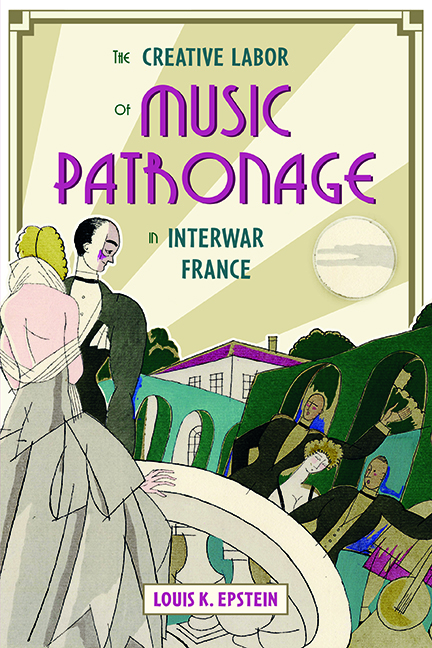Book contents
- Frontmatter
- Dedication
- Contents
- List of Tables
- List of Musical Examples
- Acknowledgments
- Abbreviations
- Introduction: Redefining Patronage
- 1 The Patronage Problem
- 2 Aristocratic Commissions
- 3 Entrepreneurial Patronage and Concert Dance
- 4 The Publisher as Patron
- 5 Jacques Rouché: The State’s Patron
- 6 Nationalizing Music Composition
- 7 Transatlantic Legacies
- Bibliography
- Index
- Music in Society and Culture
3 - Entrepreneurial Patronage and Concert Dance
Published online by Cambridge University Press: 26 May 2022
- Frontmatter
- Dedication
- Contents
- List of Tables
- List of Musical Examples
- Acknowledgments
- Abbreviations
- Introduction: Redefining Patronage
- 1 The Patronage Problem
- 2 Aristocratic Commissions
- 3 Entrepreneurial Patronage and Concert Dance
- 4 The Publisher as Patron
- 5 Jacques Rouché: The State’s Patron
- 6 Nationalizing Music Composition
- 7 Transatlantic Legacies
- Bibliography
- Index
- Music in Society and Culture
Summary
The aristocratic commissions of the 1920s and 1930s intersected with another phenomenon that exerted a profound influence on French music: the rise of entrepreneurial patronage of modern dance, and with it, an explosion of new music. With the seemingly oxymoronic phrase “entrepreneurial patronage,” I intend to capture the dynamic blend of motives that fueled the creation and management of a number of Paris-based concert dance companies between 1920 and the mid-1930s. Like aristocratic patrons who commissioned for salon performances and costume balls, entrepreneurial patrons were collectors who used their financial resources and social capital to elicit new music from their favorite composers. And like aristocratic patrons, entrepreneurial patrons felt a deep desire not only to fund but to participate in artistic creation. Unlike aristocratic patrons, who subscribed to cultural mores that restricted their participation in for-profit endeavors, however, entrepreneurial patrons plunged themselves into the decidedly unrefined world of “the market.” They entered into productive albeit largely zero-sum competition with managers, impresarios, and other entrepreneurial patrons.
Sergei Diaghilev provided the model that French entrepreneurial patrons would follow in the years to come. Drawing on the resources of his investors, he advanced an art-for-art’s-sake agenda through a public-facing, profit-seeking ballet company starting in the years before the First World War. As Lynn Garafola argues, Diaghilev's “extraordinary genius” lay “in his teaming of art and enterprise and his intuitive understanding of how the marketplace might be exploited to serve the traditional ends of high art.” After the war, Diaghilev's success inspired rivals to enter the fray. They sought to emulate his methods, sometimes drawing on substantial personal fortunes to do so. Competition between dance companies meant competition over creative resources. Composers, painters, and choreographers became hotly contested commodities. Entrepreneurial patrons rushed to secure commitments from fashionable figures whose participation would bring prestige and modernist cachet to their troupe. The result was dozens of new works, most of which required new ballet scores that not only enriched the sounds of the dance world but quickly entered concert repertories, furthering many of the musical styles for which interwar French music is best known today.
Despite their substantial support for new music, including over thirty commissions for ballet scores, the individuals who pursued entrepreneurial patronage during the interwar years remain enigmatic.
- Type
- Chapter
- Information
- The Creative Labor of Music Patronage in Interwar France , pp. 71 - 107Publisher: Boydell & BrewerPrint publication year: 2022



